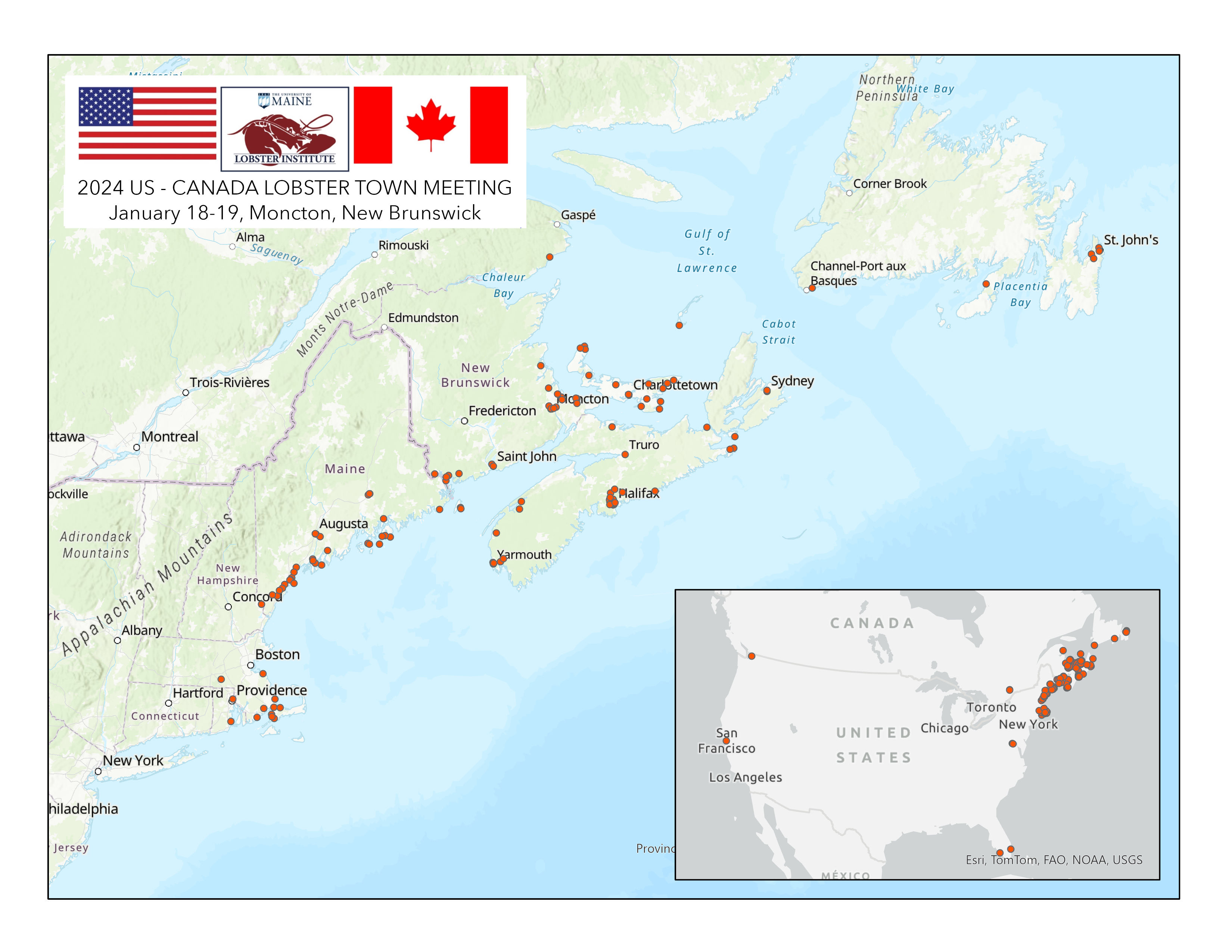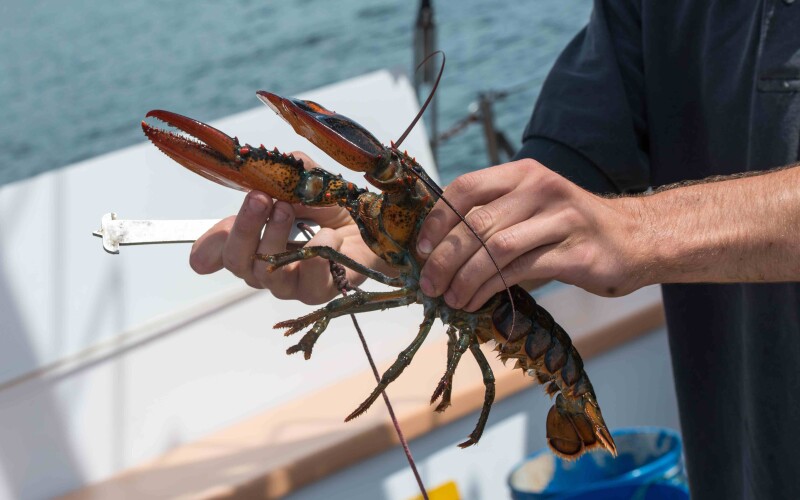The Lobster Institute's U.S.- Canada Lobster Town Meeting took place in mid-January to open dialogue within the lobster industry in the Northeast of the United States and Canada. The event included various industry members, including commercial fishermen, scientists, policymakers, managers, and association representatives. Together, these individuals came to discuss matters that are shaping the lobster fishery.

The focused sessions at the meeting included lobster markets and the implications of gauge size changes in the United States, climate change, offshore wind development, and innovations in gear.
Session 1 was focused on lobster market issues and the impact of the U.S. minimum gauge size increase. In October, National Fisherman shared that if the bigger gauge is enacted, lobstermen will need to find ways to address the state of Maine's inequities with Canada if this change is implemented within the states. The lobster abundance index passed a predetermined threshold of a 35% decline in recruit abundance indices and, as such, triggered the minimum gauge increase in hopes of enhancing spawning stock biomass.
Initially, the change was to be implemented on June 1, 2024. However, comments from the Maine Department of Marine Resources (DMR) and others have delayed the increase to January 1, 2025. They hoped the delay would provide additional time for the Maine lobster fishery to work with Canadian fisheries officials on management measures that support the equity of fishermen and stock resiliency on both sides of the border.
The Session 1 panelists included Dan McKiernan of the MA Division of Marine Fisheries, Kathleen Reardon of ME DMR, Pete Daley of Ready Seafood, Nat Richard of the Lobster Processors Association, and Stewart Lamont of Tangier Lobster Company.
The three themes that emerged from Session 1 were:
- Confusion about the decision-making process and timing of gauge increases in the United States.
- Mixed perspectives on whether increasing gauge size will benefit lobster biomass in the region.
- Concern and uncertainty about the impacts of increased gauge sizes in the United States on Canadian lobster processors.
Multiple representatives from lobster processing shared that changes in minimum gauge size and subsequent loss of landings will impact their facilities through reduced staff, challenges in exporting products to the U.S., and changes in product availability across seasons. Other comments reflected frustrations with data availability in Canada and questions about secondary effects on global markets and customers specifically interested in smaller lobster tail products. Nat Richard highlighted the challenges to processors, Canadian and U.S. lobster industry interdependence, labor and supply chain issues, and the lack of timely data on which to base decisions.
Representatives from ME DMR and MA Division of Marine Fisheries shared that ASMFC will meet to clarify the process and timing of the proposed minimum gauge size increase. They also mentioned that the discussion will include how this change will affect the national standard of lobster minimum size in the U.S. through the Mitchell Bill of 1990 and provide details regarding other changes.
Pete Daley spoke about the impact of the gauge increase on landings, employment, and supply chain and described the action as premature. In months to come, Maine fishermen hope to get more information on the increase and if Canada implements changes alongside the U.S. lobster fishery.
The Lobster Institute commemorated the 19th anniversary of the Lobster Town Meeting by reflecting on milestones the industry has achieved, lessons learned, and challenges that lie ahead. They stated they will remain steadfast in their commitment to stewardship, collaboration, and innovation.
Thank you to the University of Maine graduate students and the Lobster Institute for compiling a report of the Lobster Town Meeting and sharing the highlights of Session 1 with NF.
All information was collected by:
- Julia Kreth Barron
- Kailee Berge
- Rose Edwards
- Clea Harrelson
- J. Jesse
- Isabella Levine
- A. Moulton
- M. Piedrahita
- Emma Smith
- Kelsey Wells
- Gabriella Wiegman
- M. Yung
- Dr. Joshua Stoll, Associate Professor of Marine Policy, School of Marine Sciences, University of Maine
- Chris Cash, Interim Director, Lobster Institute







